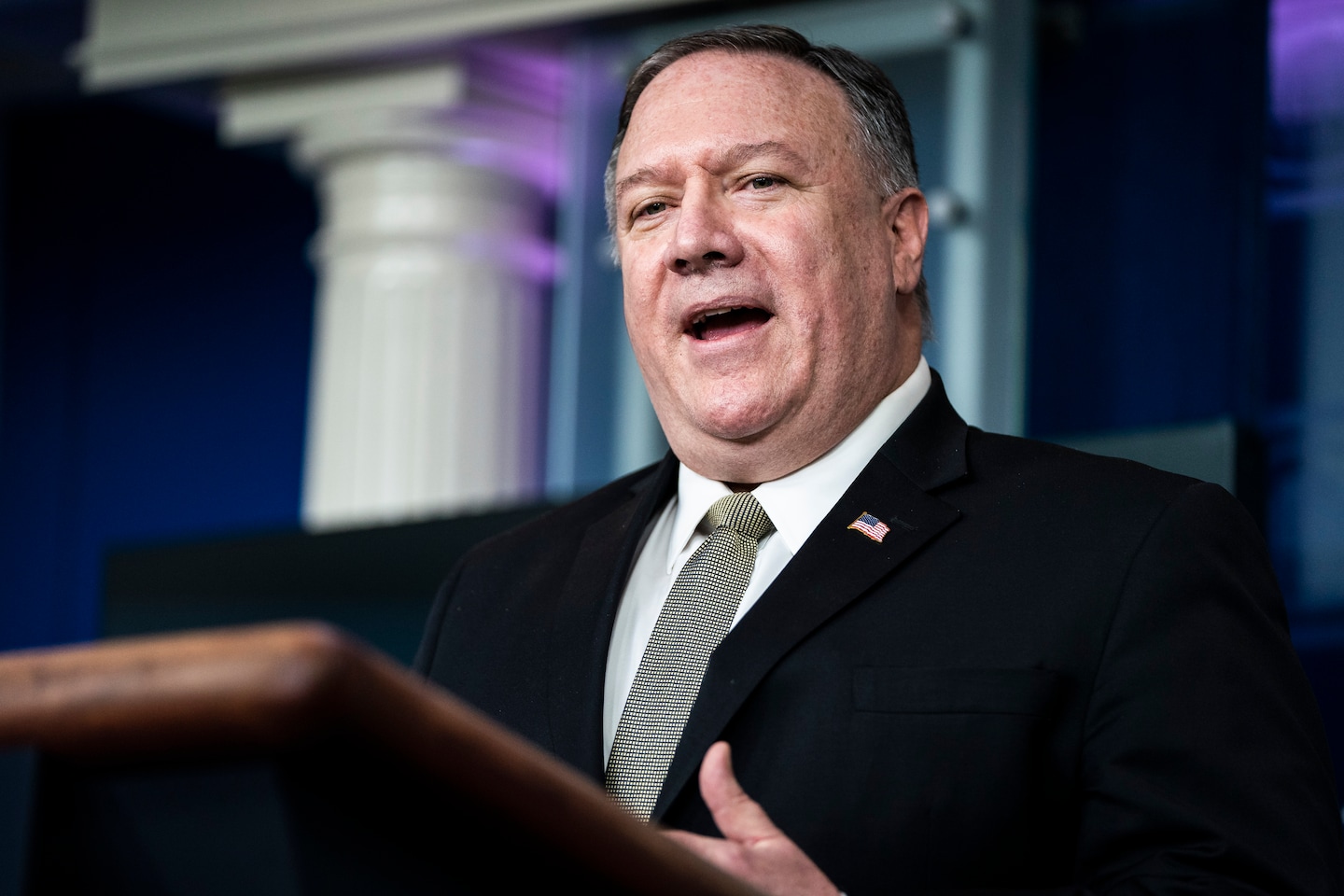Mike Pompeo is the worst secretary of state in history

Pompeo has failed to fill dozens of senior positions at the State Department, and hundreds of career diplomats have left or been driven out in political purges. Morale is at a historic low: In staff surveys, there has been a 34 percent increase between 2016 and 2019 in those who say the State Department’s senior leaders “did not maintain high levels of honesty and integrity.” Maybe that’s because Pompeo himself has defied legal mandates from Congress, skirted a law restricting arms sales to Saudi Arabia, tasked staffers with carrying out errands for himself and his wife, and fired the inspector general who was investigating his violations.
Last week, Pompeo crossed yet another ethical line by speaking before the Republican National Convention, thereby disregarding the State Department’s explicit legal guidance against such appearances. The speech he delivered was weak and littered with false or simply ludicrous claims, such as that the recent diplomatic accord between Israel and the United Arab Emirates is “a deal that our grandchildren will read about in their history books.” Maybe if they major in Middle Eastern affairs.
With his ambitions likely fixed on a presidential candidacy in 2024, Pompeo is undoubtedly hoping most of the diplomatic disasters will ultimately be blamed on President Trump, especially if Trump loses the November election. But the former Kansas congressman should not get off so easy. Yes, it’s Trump’s foreign policy. But Pompeo’s steering of it has led to some of the worst diplomatic damage the United States has suffered in decades — especially in relations with its closest allies.
A good example can be seen in the debates over Iran this month at the U.N. Security Council. Amid the press of other news, the Trump administration’s failure to extend an expiring U.N. arms embargo against Iran hasn’t gotten much attention. But it offers a telling illustration of how Pompeo has driven U.S. policy into blind alleys.
The pressure campaign against Iran has been Pompeo’s signature cause: Trump announced the U.S. withdrawal from the multilateral accord restraining Iran’s nuclear program 13 days after Pompeo became secretary of state in April 2018. The president said he wanted to negotiate another deal, but Pompeo quickly moved to head that off, setting a dozen far-reaching conditions Tehran would have to meet and letting it be known his own goal was regime change.
Which, of course, hasn’t happened. Despite mounting U.S. sanctions and a drone strike killing its most important general, the regime of Ayatollah Ali Khamenei has remained intact and has stepped up its uranium enrichment. By this summer Iran had quintupled the stockpile of enriched uranium it had when Pompeo’s crusade began.
That brings us to the battles at the Security Council, where Pompeo tried to force through an extension of the U.N. arms embargo against Iran, which is due to expire in October. Though U.S. allies have no interest in allowing Tehran to sell and buy weapons, they recognized that a new embargo would rupture what remains of the nuclear deal, prompting Iran to expel the U.N. inspectors who are still monitoring its activities. That, they concluded, was Pompeo’s real intent.
The result was a humiliatingly lopsided vote against the U.S. resolution, with Britain, Germany and France withholding support. Pompeo’s reaction was to publicly trash the allies — who, he said, “chose to side with the ayatollahs.” A week later, he doubled down, notifying the Security Council that the United States would seek to invoke a provision of the nuclear accord allowing one government to unilaterally force the reimposition of U.N. sanctions — even though Washington is no longer a party to the pact.
That has set the stage for an even more bruising battle. Last week, the Security Council’s president announced that all but one member of the council had rejected the U.S. gambit as illegal. The U.S. reaction? Another statement accusing its closest allies of “standing in the company of terrorists.” Pompeo, says Daniel Fried, a former State Department chief for Europe, “seemed to take gratuitous pleasure in division.” U.S. relations with Europe, he told me, are the “worst I can remember.”
When a 30-day waiting period expires in late September, the Trump administration may insist that global sanctions on Iran are back in force. If it does, the attempted fiat probably will be ignored by most of the world, including the leading democracies. The United States will stand visibly isolated. And Mike Pompeo’s tenure as history’s worst secretary of state will have reached its apotheosis.
Read more:






